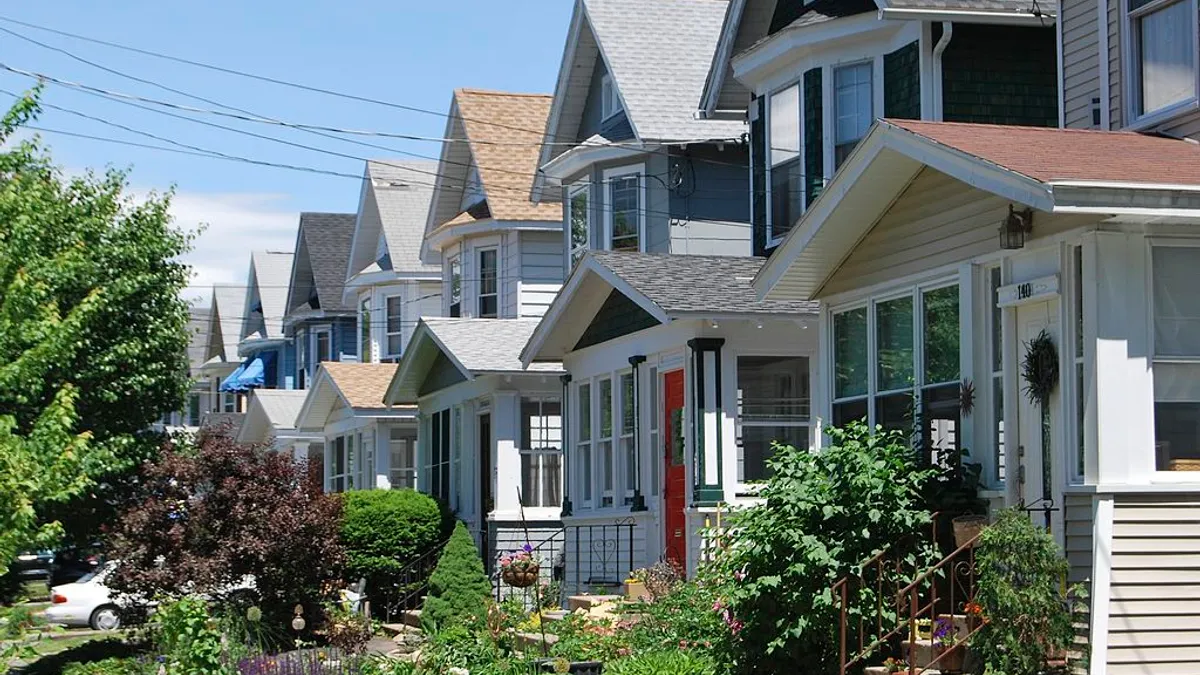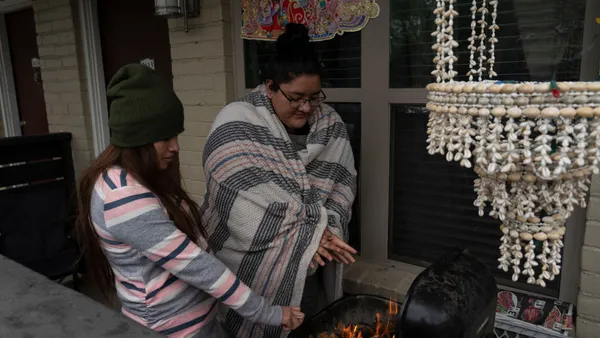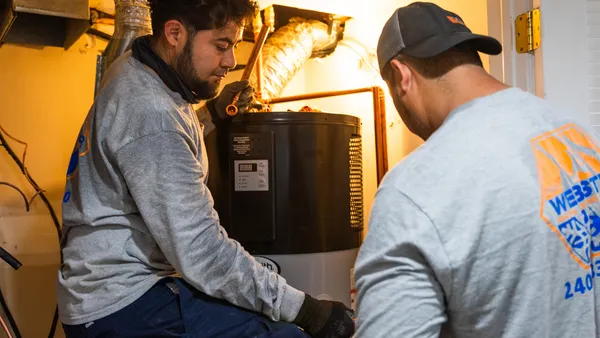Dive Brief:
- Nearly a dozen U.S. mayors joined Airbnb, Sutter Health and GHC Housing Partners yesterday to launch the Mayors & CEOs for U.S. Housing Investment, a coalition developed to advance public-private partnerships that tackle affordable housing and homelessness.
- The group recommends four policy changes to help stabilize the current housing outlook: maximize funding for existing federal programs such as Section 8 Housing Vouchers and Community Development Block Grants; issue new, competitive HUD-HIIRO grants; build on the HUD-Veterans Affairs Supportive Housing model through HUD-PASS (Partnerships Accelerating Supportive Services); and create a housing stabilization fund to provide short-term emergency housing assistance.
- The mayors involved in the coalition include: John Mayor, Mesa, AZ; Greg Stanton, Phoenix; Mark Stodola, Little Rock, AR; Eric Garcetti, Los Angeles; Libby Schaaf, Oakland, CA; Kevin Faulconer, San Diego, CA; Darrell Steinberg, Sacramento, CA; Steve Hogan, Aurora, CO; Michael Hancock, Denver; Muriel Bowser, Washington, DC; and Jim Kenney, Philadelphia. San Francisco is also represented in the coalition, though due to changing leadership in the city, a mayor has not officially joined.
Dive Insight:
The housing investment concept was initiated last year by the late San Francisco Mayor Ed Lee and quickly formed into the coalition launched yesterday in Washington, DC. At the launch event, Mayor Bowser said that by investing in affordable housing, "we are investing in safer, stronger communities and building new pathways to the middle class for our most vulnerable residents." She touted the city's John and Jill Ker Conway Residence, which offers permanent housing for formerly-homeless veterans and low-income DC residents.
For any city working toward a "smart" future, housing is a necessity that must be prioritized in resiliency plans. Boston is one city that has made significant strides in housing development, and Mayor Marty Walsh was recently tapped to lead the U.S. Conference of Mayor's Community Development and Housing committee.
Cities including Seattle, San Jose and Austin are pushing to combat chronic homelessness on their streets through investments in tiny house communities and tax proposals. Other cities such as New York are home to "smart shelters" that use data technology to reduce instances of homelessness. According to the coalition, 553,742 people nationwide experience homelessness on any given night. The size and scope requires a range of solutions to effectively combat homelessness from coast to coast.
The most interesting partner of the coalition is Airbnb, a home-sharing company that has been said to potentially monopolize housing markets. Many cities have looked to regulate short-term rentals as a way to limit the reach of companies like Airbnb, though through a partnership like the housing investment, Airbnb may now work more closely with cities to effectively fold home-sharing into overall economic and stability plans.











